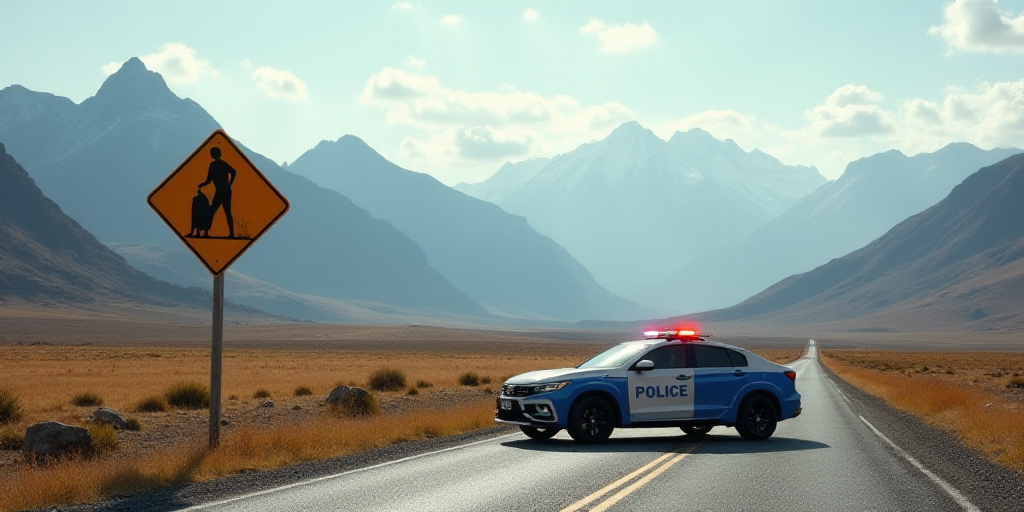Background on Key Figures and Context
The leaders of the G7 nations, including U.S. President Donald Trump, will gather in Canada’s Rocky Mountains starting Sunday for a summit marked by escalating tensions between Israel and Iran. This three-day meeting in Kananaskis marks Trump’s return to international diplomacy since the beginning of his second term in late January, during which he has shaken up the international stage with attempts to impose new rules.
Trump’s relationship with Canada, his northern neighbor, has been strained due to his repeated calls for Canada to become the 51st U.S. state. However, tensions have eased since April when Mark Carney replaced Justin Trudeau as Canada’s Prime Minister. Although Trump had shown disdain for Trudeau on the global stage, Carney designed this gathering to ease bilateral friction among seven leading advanced economies: Germany, Canada, France, Italy, Japan, the United Kingdom, and the United States.
If the meeting was already laden with contentious topics, leaders will now have to address Israel’s military campaign aiming to end Iran’s nuclear program, to which Tehran responded by launching hundreds of missiles and drones at Israeli territory.
Israel-Iran Conflict and Other Key Issues
Israeli Prime Minister Benjamin Netanyahu initiated this offensive despite Trump publicly urging him not to use force, as the U.S. was engaged in diplomatic negotiations with Iran to end its controversial nuclear weapons program. Trump later praised Israel’s actions, calling for both sides to “reach an agreement.”
Trump will meet with the other G7 leaders, who hold opposing views on the Israel-Iran conflict. French President Emmanuel Macron has called for moderation and urged Iran to resume talks with the U.S., while blaming Tehran for escalating tensions due to its nuclear program.
Japan, a historic ally of Iran, denounced Israel’s attacks as “completely unacceptable and regrettable.”
Additional Conflicts on the Agenda
Another issue to be addressed in Canada is Russia’s ongoing invasion of Ukraine, which has lasted more than three years. Ukrainian President Volodymyr Zelenskyy is among the guests and hopes to speak with Trump, who publicly ridiculed him during their meeting at the White House on February 28.
Upon returning to the White House, Trump anticipated a swift agreement between Ukraine and Russia but grew frustrated after Russian President Vladimir Putin rejected U.S. requests for a temporary truce.
Trump spoke with Putin on the phone about the Israel-Iran conflict and the Ukraine situation. However, none of these topics are expected to feature in the joint G7 statement.
Instead, Carney aims for non-controversial declarations, such as improving supply chains. European Commission President Ursula von der Leyen also spoke with Trump on Saturday, urging him to pressure Putin further to end the war in Ukraine and expressing hope for progress in trade negotiations with the Trump administration.
By imposing at least a 10% tariff on most products entering the U.S., Trump has threatened the world with economic slowdown.
Josh Lipsky, an international economics expert at the U.S.-based Atlantic Council, anticipates that U.S. allies will tread carefully with tariffs due to the “enormous risk” of pushing Trump too hard, as demonstrated by previous experiences.
Guests and Potential Discussions
Apart from Ukraine, guests at the summit starting Sunday include Mexico, India, South Africa, and South Korea. With the presence of Mexican President Claudia Sheinbaum, Canada has managed to bring together the three allies of the recently questioned North American Free Trade Agreement (T-MEC) by Trump.
This could enable leaders to initiate dialogue on their economic relationships. However, Ottawa does not anticipate significant progress on this topic during the summit, according to a Canadian government source.
Key Questions and Answers
- Who are the key figures attending the G7 summit? The leaders of Germany, Canada, France, Italy, Japan, the United Kingdom, the United States, along with guests Mexico, India, South Africa, and South Korea are in attendance.
- What is the main topic of discussion at this summit? The primary focus is on managing the escalating conflict between Israel and Iran, as well as addressing Russia’s invasion of Ukraine.
- How has Trump’s relationship with Canada been affected? Despite strained relations, tensions have eased since Mark Carney replaced Justin Trudeau as Canada’s Prime Minister in April. Carney organized this gathering to ease bilateral friction among G7 nations.
- What are Trump’s stances on the conflicts discussed? Trump has urged restraint in the Israel-Iran conflict and criticized Iran for escalating tensions. Regarding Ukraine, Trump expected a swift agreement between Ukraine and Russia but grew frustrated with Putin’s rejection of temporary truce requests.
- What are the potential outcomes from the summit? While significant progress on economic relationships between G7 nations is unlikely, the summit may facilitate dialogue on non-controversial issues like supply chain improvements.






